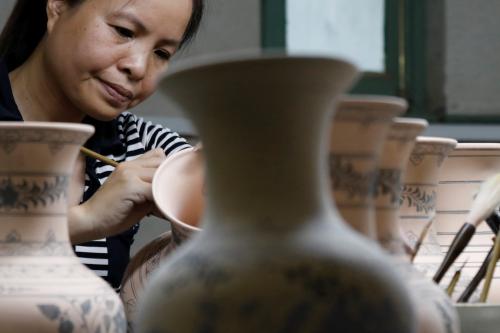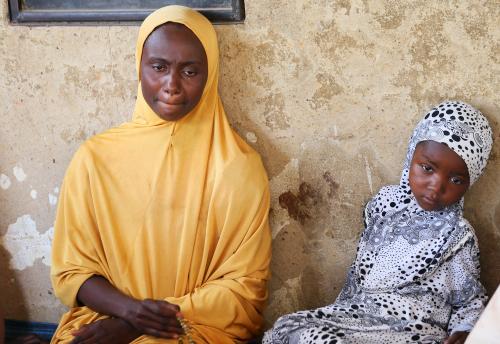Even under what some may describe as normal conditions, girls in Nigeria face a distinctive set of barriers to formal education at all levels. Nearly 2 out of 3 (about 6.34 million) of the country’s 10.19 million out-of-school children in the country are girls. Prior to the outbreak of COVID-19, violence, child, early, and forced marriages (CEFM), lack of schools, inadequate infrastructure, unsafe environments, limitations in teacher training, and systemic gender biases impeded girls’ participation and learning in formal schooling across Nigeria.
With the outbreak of the pandemic and the subsequent closure of schools, the country has not only suffered direct losses from its impact, but also an ever-worsening spate of insecurity and violence across the country, including attacks on school children—especially girls. For instance, at the start of 2020, 935 schools in Northeast Nigeria were closed as a result of attacks and conflict. Indeed, schools are among the worst institutional casualties of complex disasters, as is evident from the COVID-19 pandemic, the Boko Haram insurgency, and several attacks on communities in Nigeria, which have all compounded the problems many girls face in consistently accessing schooling. This calls for improved responses for education during emergencies in Nigeria.
Schools are among the worst institutional casualties of complex disasters, as is evident from the COVID-19 pandemic, the Boko Haram insurgency, and several attacks on communities in Nigeria, which have all compounded the problems many girls face in consistently accessing schooling.
In response to the forced closure of schools, the Oyo state government launched an “education-in-emergency” intervention called “School on Air” to serve as an alternative way of learning for students during the school closures. Students were expected to participate in remote classes by watching recorded subject lessons on the TV or listening to radio broadcasts. However, initial reports have found gender disparities in student participation in remote learning interventions during COVID-19, with household duties preventing girls from having sufficient learning time. Equally important are concerns about how factors such as loss of jobs and family income during COVID-19, teenage pregnancies, child labor, and CEFM might prevent girls from returning to complete their education even after the reopening of schools.
How can policy and practices be designed to ensure that girls and young women are not left behind in times of emergency? This is the question I will take up in my research as an Echidna Global Scholar at Brookings.
Ensuring all Nigerian girls exercise their right to learn, continuously
Having lost my father at age 13, I experienced firsthand how the loss of a family’s primary means of economic support could potentially threaten a girl’s education or lead to an early or forced marriage. I was fortunate that my mother—a formally educated woman herself—was committed to ensuring that my three siblings and I completed our primary-, secondary-, and even university-level education.
Now, having gained formal education and its privileges, I am committed to ensuring that girls across Nigeria are equally able to exercise their same right to learn. No girl’s right or desire for formal education should ever be denied for any reason. For over 15 years, I have worked to advance children’s and especially girls’ education rights, as well as improve public schooling standards. To break cycles of educational and social exclusion for girls—and their children—MAYEIN, an organization I founded in 2012, has campaigned for girls’ education in communities across southwest Nigeria and has established “Girls without Borders,” a network of school-based clubs designed to teach girls their basic rights and provide them with leadership training.
Through my research as an Echidna Global Scholar, I hope to expand my impact and assist both Nigeria’s federal and the Oyo state governments, respectively, in formulating policy solutions for education during emergencies that are gender equitable and just—ensuring that no girl goes without an education, even in times of emergency.






Commentary
Education in emergency in Nigeria: Creating gender equitable policies so all girls have an uninterrupted right to learn
July 27, 2021